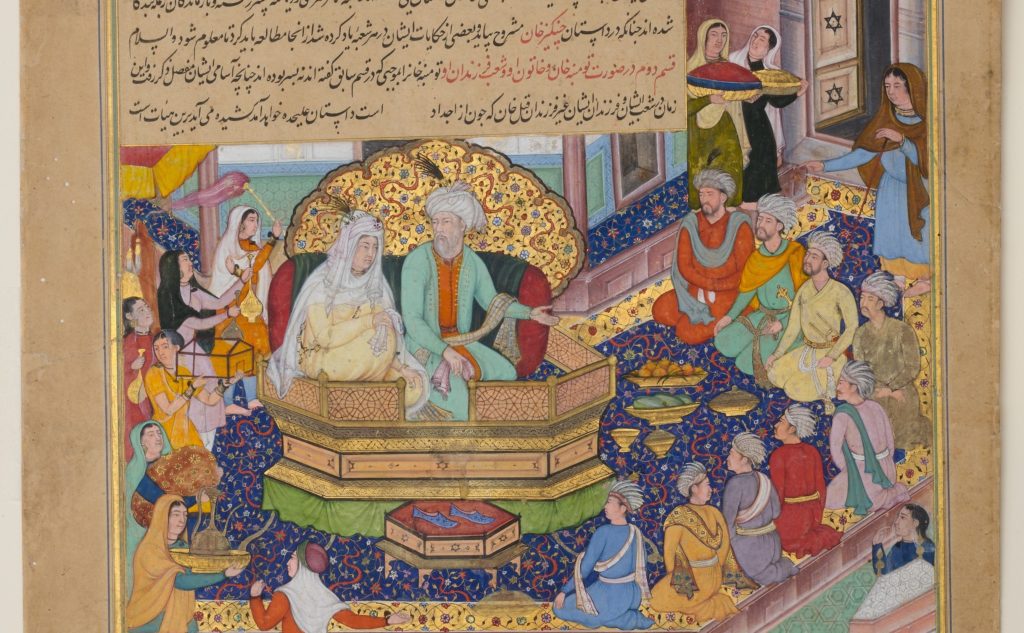2.3.6 Hierarchy and Islamic Ethics

“Tumanba Khan, His Wife, and His Nine Sons”, Folio from a Chingiznama (Book of Genghis Khan)
ca. 1596. The Met, Public Domain.
Classical Islamic scholars such as Abu Hamid Muhammad al-Ghazali and Nasr-ad Din Tusi had a profound impact on Islamic ethics today. Yet, as we continue to mine the richness of their contributions, we are also faced with questions about whom they were writing for—and whose subordination was required for the kind of society they envisioned.
In the following essay, Saadia Yacoob, Assistant Professor of Religion at Williams College, considers the hierarchies and inequities built into key texts in classical Islamic ethical discourse. In her response to Zahra Ayubi’s Gendered Morality, Yacoob notes that these intersecting hierarchies around gender to enslavement, age, social status, and religion determine who has a clear path to spiritual refinement.
Read: Hierarchy, Interdependence, and Islamic Ethics // Contending Modernities
Guiding Questions:
- What structures and expectations cause the women quoted in the article to feel like they are “missing out on worship and seeking knowledge”?
- What is one contradiction Ayubi identifies in classical ethical discourse?
- What does it mean for Islam if only a male elite can achieve ethical refinement, at the expense of non male elites?
- How might an ethics built around interdependence and equality change the lives of women who feel they are alienated from and “missing out” on their faith?
- How can we learn from the scholars of the past, while attending to the dignity of all people in the present?
Thumbnail: “Tumanba Khan, His Wife, and His Nine Sons”, Folio from a Chingiznama (Book of Genghis Khan), ca. 1596. The Met, Public Domain.


